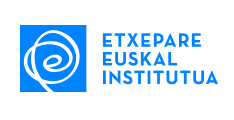Ryan Schuessler/ Boise, ID, USA. Standing against the wall of the crowded Leku Ona (Good Place) bar, Dave Asumendi took a sip of his wine as he watched a group of young people dancing in circles, moving to the music of a band that kept switching between Basque folk songs and accordion-infused Johnny Cash tunes.
It was Thursday night on Boise’s Basque Block, a small stretch of Basque-American businesses and cafes in Idaho’s capital. Asumendi had just arrived from the intermediate Basque language course taught at the cultural center across the street.
“It’s always been a lifelong burn to learn the language,” he said.
Asumendi, whose grandparents immigrated to the United States from Spain, is one of the many Basque-Americans who have mobilized to learn their unique ancestral tongue, which now has fewer than 1 million speakers worldwide. In recent years, the autonomous Basque government in Spain has invested significantly in language education, looking to boost the number of Basque speakers in Spain and in Basque diaspora communities.
One of the least likely beneficiaries of that largesse has been Idaho, which hosts one of the most active and vibrant communities of Basque-Americans in the U.S. and one where many community members are dedicated to keeping the language going. There are Basque classes for all ages and abilities — often taught by teachers paid by the Basque regional government — and even a Basque immersion preschool, plus a Basque studies department at Boise State University.
Idaho has the highest percentage of Basque speakers in the U.S. and is home to five of the top nine counties where Basque is spoken. In two of those counties — Lincoln and Owyhee — Basque is the third-most-common language spoken in the home, after English and Spanish.
Verb conjugations
Euskara — as it is called in Basque — is spoken in northeastern Spain and across the border in France. It is an ancient language, apparently unrelated to any other tongue, which may have been spoken in the region long before the development of the Indo-European languages currently spoken by most other Europeans.
It arrived in U.S. in the late 1800s as Basques started immigrating to the United States en masse, establishing notable communities throughout the American West — Idaho, Nevada and California, to name a few. The community experienced a fresh wave of immigrants during dictator Francisco Franco’s rule in Spain, where political ideas such as Basque independence were violently suppressed
Christine Bender, a Basque-American who was a child during the second wave of immigration, remembers those years. When she was 6, she said, she saw an elderly Basque woman who had just arrived from Spain at a community gathering in Boise. As soon as the Basque flag was brought out and dancing began, Bender said, “That woman just burst into tears.”
“That made an impression on me,” she said. “Even as a child.”
Today the number of native Euskara speakers is just over 700,000 — barely one-fourth of those living in historically Basque lands. In the United States, assimilation became the norm, and the language was largely not passed on to the children and grandchildren of Basque immigrants.
Basque dancing
“Here in the diaspora, it’s a much bigger challenge, because you can utilize Basque every day in the Basque Country, but you can’t utilize it every day here,” said David Lachiondo, whose father immigrated to the United States in the 1930s. “I regret that I do not speak it fluently. It is a very deep regret of mine.”
But in places like Boise a new generation is growing up with more familiarity with the language. Lachiondo’s daughter speaks it fluently, having participated in language classes in Boise, as well as a study abroad program in Spain. She speaks the language to her children, Lachiondo said.
Annie Gavica’s family had a similar story, saying of her parents, “They didn’t speak any Basque or speak a word of any other language.” She is from a small town in Nevada and is a third-generation Basque-American on both sides of her family.
Like Lachiondo’s daughter, Gavica is of the generation that starting trying to bring back the language. In 2008 she and her sister attended a Basque language immersion school for adults in Spain. In post-Franco Spain, the regional Basque government has spent hundreds of millions of euros on Euskara language education and preservation in Spain and around the rest of the world.
Maria Carmen Egurrola Totorica, who at 5 survived the 1937 German bombing of the Basque city of Gernika (known in Spanish as Guernica), assisted a professor in one of Boise’s first Euskara classes in the early 1970s. She has seen her eight children and eight grandchildren learn the language to varying degrees, most recently using online tools.
“That’s the way to keep it alive,” she said of the Internet, where Basque government-developed Euskara classes are available at little or no cost.
“The autonomous Basque government has put a lot of effort into teaching the Basque language,” Gavica said. “There’s more learned Basque speakers because of language classes here and because of study abroad programs.”
“We have a very good working relationship with the Basque government,” she added. “Especially here in Boise.”
In Idaho, the Basque government helps pay for Euskara instructors at all levels. Itxaso Cayero is one of those teachers. Idaho-born but raised in Spain, She returned to Boise for high school and college, then fell into teaching.
“A lot of people in the Basque Country see the community in Boise as the diaspora that’s thriving,” she said. “They’re amazed by the things we do.”



 Lagun bati bidali
Lagun bati bidali Komentarioa gehitu
Komentarioa gehitu








